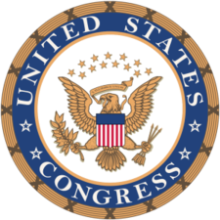Welcoming New ACLS Postdoctoral Fellows to Work on Telehealth and Native Networks
We're excited to announce that two postdoctoral fellows will be joining the Institute for Local Self-Reliance this coming fall to undertake one-year broadband projects to advance policy intitiatives and help move the needle towards universal, affordable, high-speed Internet access in the United States.
The fellows are coming to us through the American Council of Learned Society's Leading Edge Fellowship Program, which places humanities and social science PhDs with nonprofits working to solve problems, build capacity, and advance justice and equity in society. 41 fellows were named for the 2021 year to work on issues like voting, civic governance, housing uncertainty, health outcomes for communities of color, reforming the justice system, and education.
This is our first year participating, and we're thrilled to announce that both of our proposed projects were chosen. The candidates were each unique and outstanding, and we're thrilled to announce that Tessa A. Eidelman (PhD, Community Research and Action, Vanderbilt University) and Revati Prasad (PhD, Communication, University of Pennsylvania) will be joining us starting in September.



